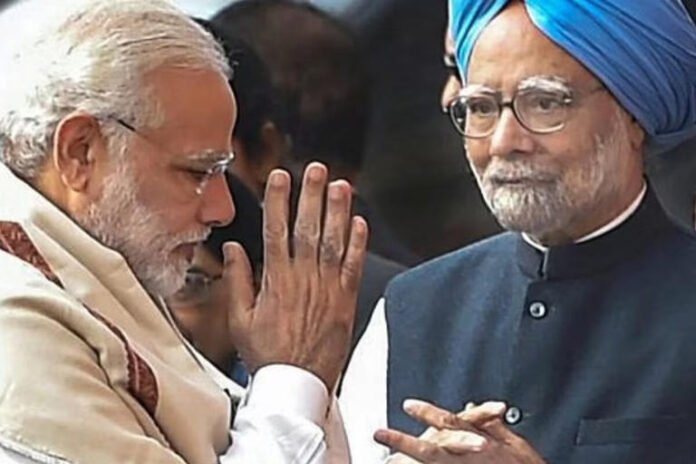Former Prime Minister Manmohan Singh has launched a scathing critique of current Prime Minister Narendra Modi, accusing him of being the first Indian leader to significantly lower the dignity of public discourse. Singh’s remarks, made during a recent interview, have sparked a heated debate about the evolving nature of political dialogue in India.
Singh, known for his soft-spoken and measured demeanor, expressed deep concern over what he perceives as a decline in the quality of political debate under Modi’s leadership. He lamented the erosion of respectful and constructive discourse, which he believes has given way to a more confrontational and divisive style of politics.
“Prime Minister Modi has introduced a level of vitriol and personal attacks that were previously unheard of in Indian politics,” Singh said. “This is not just a departure from established norms; it is a fundamental shift that undermines the very fabric of our democracy.”
Singh’s critique is rooted in a broader concern about the impact of Modi’s rhetoric on Indian society. He argued that the Prime Minister’s approach has contributed to increased polarization and intolerance, making it more difficult for different political groups to find common ground.
“Public discourse should be about addressing the issues that matter to the people and finding solutions through dialogue and consensus,” Singh emphasized. “Instead, we are witnessing a disturbing trend where disagreement is met with demonization, and dissent is seen as disloyalty.”
The former Prime Minister pointed to several instances where Modi’s speeches and public statements have been marked by sharp personal attacks on political opponents. Singh argued that such tactics not only degrade the quality of debate but also set a dangerous precedent for future leaders.
“This kind of behavior from the highest office in the land sets a poor example for our political culture. It sends a message that it is acceptable to attack individuals rather than engage with their ideas,” Singh noted. “This is not the India that our founding fathers envisioned.”
Singh’s remarks have resonated with many who share his concerns about the current state of political discourse. Political analysts and commentators have noted a shift towards more aggressive and adversarial rhetoric in recent years, a trend that they attribute in part to Modi’s influence.
However, supporters of Prime Minister Modi have pushed back against Singh’s critique, arguing that Modi’s style of politics is a response to the demands of a changing electorate. They contend that Modi’s direct and often blunt communication resonates with a large segment of the population that feels alienated by traditional political elites.
“Prime Minister Modi speaks the language of the people. He is not afraid to call out hypocrisy and corruption, even if it means ruffling a few feathers,” said BJP spokesperson Anil Baluni. “This is why he continues to enjoy widespread support across the country.”
Baluni also pointed out that Modi has made significant efforts to connect with ordinary citizens through various platforms, including his popular radio show “Mann Ki Baat” and his active presence on social media. These efforts, Baluni argued, have helped to democratize public discourse and make politics more accessible to the average citizen.
Despite the differing opinions on Modi’s impact on political discourse, there is a consensus that the nature of political communication in India is undergoing a significant transformation. Whether this transformation is for better or worse remains a subject of intense debate.
Manmohan Singh’s critique of Modi is not merely an assessment of the current political climate; it is a call to action for leaders and citizens alike to reflect on the values that should underpin public discourse. As Singh aptly put it, “We must strive to elevate our political dialogue, to make it worthy of the great democracy that India is. Only then can we hope to address the challenges that lie ahead.”
In the coming months, as India heads towards crucial elections, the discourse around this issue is likely to intensify. Singh’s remarks have undoubtedly added a significant dimension to the ongoing conversation about the future of Indian democracy and the role of its leaders in shaping its trajectory.

